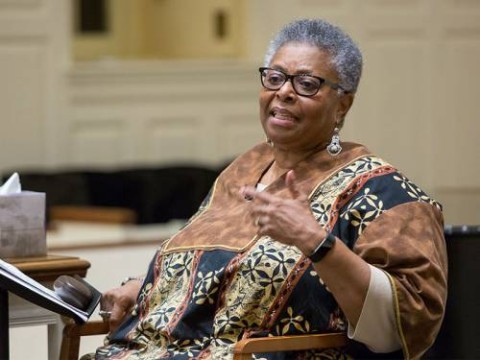Katie Geneva Cannon raised up black women’s voices for the sake of church and world
Cannon created a womanist approach to theology and wove it through her vocation as a pastor, professor, and ethicist.

Reflecting on her decades of teaching Christian ethics at Union Presbyterian Seminary in Richmond, Virginia, Katie Geneva Cannon recently said, “Teaching is my ministry. I love to teach. To empower. To equip. To set people free . . . to live into the graces and gifts they’ve been given.” When Cannon died on August 8, the church, academy, and world lost a transformational leader whose groundbreaking scholarship and influence have been felt across the globe.
Cannon embodied a life of firsts. She was the first black woman ordained in the United Presbyterian Church, a predecessor to the Presbyterian Church (U.S.A.). She was the first African American woman to receive a Ph.D. from Union Theological Seminary in New York. She was the pioneer of womanist theology, an interpretive approach that seeks to empower the neglected voices of African American women and the entire African diaspora.
Her theological and ethical commitments can be traced to her childhood. Cannon was born in the highly segregated town of Kannapolis, North Carolina, in 1950. Raised in a Presbyterian church, she and her three sisters and three brothers were formed in the context of the segregated Catawba Synod. Their parents, Esau and Emanuelette Corine Lytle Cannon, were ruling elders in the church. They placed Katie in the only school available to black children, which was part of a local Lutheran church. Reflecting on these years in a recent forum on race that was published in Union Presbyterian Seminary’s journal Interpretation, Cannon observed the following:




